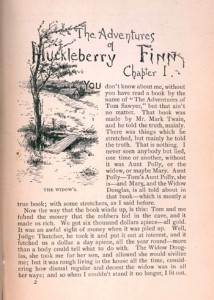My maternal grandfather, my Zayde, was born in Eastern Europe, in a little place called Galicia, which I believe, at the time, was part of Poland. He lived in a ghetto. He survived the Dachau concentration camp and emigrated to Canada in the early 1950s with nothing but his Auschwitz-survived wife and their young daughter, born to them in a DP camp in Austria, and a dream of a better life. There was not a better, kinder, gentler, more lovable man on this planet. He spoiled his daughter, and then continued to spoil her children – my siblings and me. He loved everyone. He danced with strangers. He made friends at bus stops using a VERY broken Yiddish/English hybrid. He was wonderful.
There was this one time, though, that he used the s-word in front of my friends. I remember being so incredibly mortified and in that moment, I wished with all of my might for an American-born grandfather. And no, it wasn’t the s-word you might be thinking. It was “schvatrze.†If you are not familiar with this term, it’s a racially offensive slur.
Only, to him, it wasn’t a racially offensive slur. It was simply a Yiddish word; one of the hundreds of thousands that he used on a daily basis. And it meant BLACK. He was simply being descriptive, and could not, for the life of him, figure out why I was so embarrassed by him. This became, to young Ali, an incredible learning moment. My grandfather was not a racist. I mean, really, if you knew him, you knew he was one of the most tolerant people on the planet; an absolute lover of everyone. Taking a step back, it’s easy to see that you don’t survive a Nazi death camp, a horrific experience like that, and come out intolerant on the other side of that atrocity. I mean, he was in there, tortured there, because he was Jewish, because he was different. That was it. There was absolutely no other reason.
So, while the word schvartze does exist, and to some it is – unfortunately – used as a racial slur, to some, those who grew up with Yiddish as their first, and sometimes only, language, to those who the word meant nothing but a color, it existed in a very different way.
Another racial slur, the N-word, is used in Mark Twain’s Huckleberry Finn. 200+ times. And there are people who would like to rewrite this classic. NewSouth Books, a Montgomery, Alabama-based publisher, went in and used the “find and replace†key and used the word “slave†instead of the n-word, they said, to make it more classroom friendly. WHAT? They changed the text of a classic. They actually went so far as to alter the words of Mark Twain that were first published for the world to see in 1885. Again…WHAT?
(For the record…the N-word and the word slave are NOTÂ interchangeable. They do not mean the same thing. One doesn’t replace the other.)
I call both shenanigans and censorship. One of the biggest beauties of a book like Huckleberry Finn is that is presents students and teachers with such tremendous talking, teaching and learning points. It allows for OPEN DISCUSSION about what life in the south was like in the mid-19th century and that racism existed and this THIS was the way people spoke at the time. Spoiler alert: They used the N-word. Do we not want our children to know the history…the REAL history??? It’s not pretty, it’s not tied up with a nice little bow, it’s dirty and complicated and controversial. And, as much as we don’t want to admit it, the N-word was a normal part of the lexicon back then. Pretending that potentially controversial situations and words and events and even racial slurs don’t exist is doing children a great disservice. These are discussions that need to be had. They are lessons that need to be learned. The word is SUPPOSED to make us feel uncomfortable.
The same way that my Zayde’s use of the word “schvatrze” may have caught me off off-guard, and may have brought up discussions that we wouldn’t necessarily have had…it was an important discussion to have. It was an important lesson to learn. It was supposed to make me feel uncomfortable.
What’s next? A Merchant of Venice rewrite to make my people happy?














22